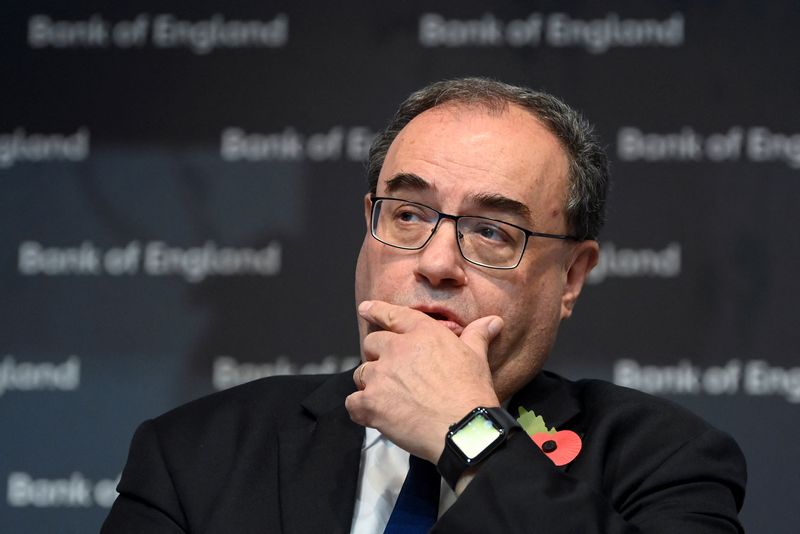LONDON (Reuters) - Bank of England Governor Andrew Bailey said on Wednesday that Britain's very tight labour market was a key reason why further interest rate increases were likely.
"It is still a very tight labour market, as yesterday's labour market statistics demonstrated," Bailey told lawmakers from parliament's Treasury Committee.
Britain's jobless rate rose and vacancies fell as employers worried about the outlook for the economy, official data showed on Tuesday. But pay growth stayed strong, with the increase in basic pay hitting a record high excluding the pandemic period.
Earlier this month the BoE raised its key interest rate by three-quarters-of-a-percentage point, the most since 1989, to 3%. Investors think it will take Bank Rate to about 4.5% by the middle of next year.
Bailey also told the lawmakers on Wednesday that there were signs that core inflation - which excludes volatile components such as energy and food prices - was easing.

"The core goods numbers do seem to be now beginning to come off," he told the committee.
Britain's headline inflation rate leapt to a 41-year high of 11.1% in October, according to data published earlier on Wednesday. But core inflation was unchanged at 6.5%.